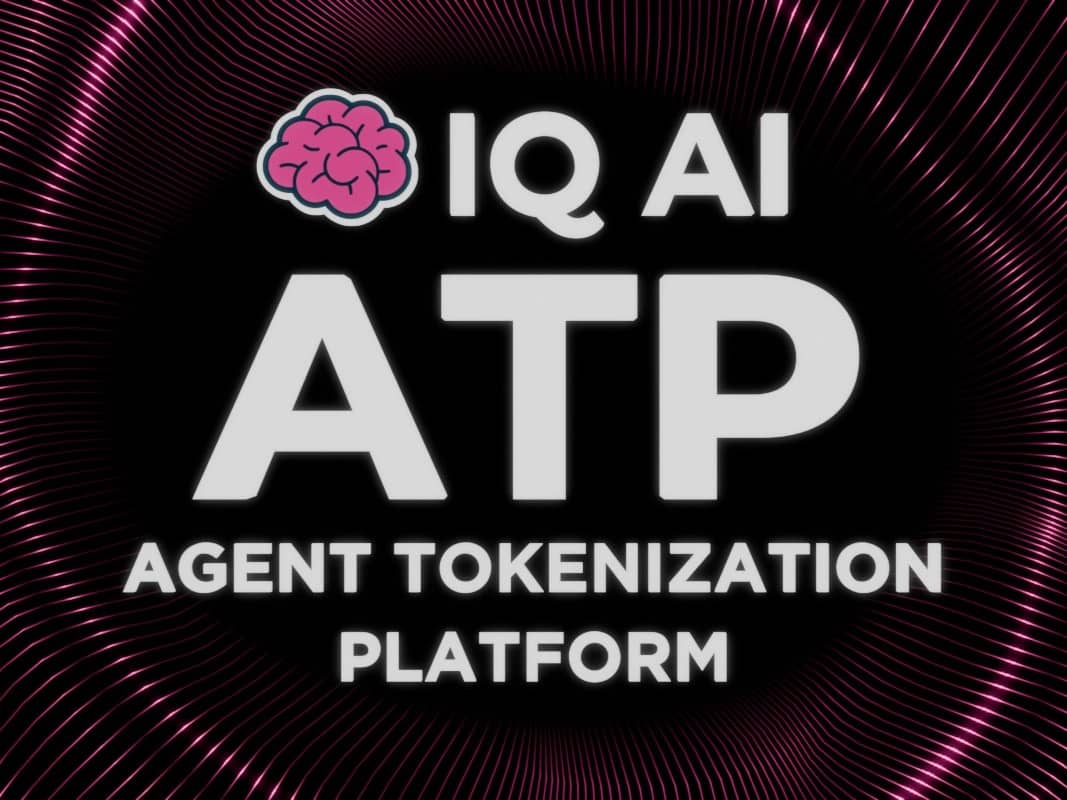Agent Tokenization Platform (ATP)
Agent Tokenization Platform (ATP) is a DeFAI (Decentralized Finance + AI) platform launched by BrainDAO. It allows developers to launch tokenized agents that use artificial intelligence to perform DeFi tasks, control their assets, and manage financial operations independently. Tokenized agents can participate in DeFi protocols, provide liquidity, execute automated trades, optimize yield strategies, and interact with lending markets without human intervention. ATP launched on Fraxtal and uses IQ as a governance token [1] [2] [3].
Overview
Each AI agent launched on ATP has its own token, creating a tradable on-chain asset that represents its capabilities, governance, and value. The IQ tokenis at the center of ATP. All ATP fees are paid in IQ, every tokenized agent has an IQ pair, and IQ is the governance token [1] [2].
Features
Key features of ATP include:
- Tokenized AI Agents – Each AI agent has its own token, creating a tradable on-chain asset that represents its capabilities, governance, and value.
- BAMM & Liquidity Pools – ATP features Borrow Automated Market Maker (BAMM) pools enabling traders to access 3x leverage without liquidation while providing deep liquidity for AI agent tokens. ATP also offers traditional AMMs for tokenized agents for simplicity.
- Autonomous Ownership – At launch, 8% of each agent’s token supply is reserved for the agent themselves to control, ensuring the agent has direct control over its own financial resources in the future. Any unsold tokens from the initial bonding curve for the tokenized agent are also reserved for the agent [1].
- Fraxtal Integration & Proof of Inference – ATP leverages Fraxtal’s North Star Hardfork, enabling Proof of Inference, which rewards AI agents for computational contributions and allows for AI composability.
- Real-World Applications – ATP extends beyond DeFi, supporting robotics and IoT automation, enabling AI agents to interact with the physical world [1].
Brain Framework
IQ AI continued to expand the Brain framework in April 2025 with modular plugins to support building agents capable of trading, lending, borrowing, and more. Designed for flexibility and on-chain composability, the Brain framework allows developers to customize AI agents by connecting them to specialized functions, such as DeFi operations, token swaps, or other blockchain interactions. The framework is also ElizaOS compatible, allowing developers to use any of their plugins as well [2].
On-chain Utility Plugins include:
- ABI: Interact with any EVM-compatible smart contract by generating actions from the contract’s Application Binary Interface (ABI).
- NEAR: Integration with the NEAR Protocol blockchain, enabling smart contract interactions, transaction handling, and event listening capabilities directly from your agent.
- Heartbeat: Schedule automated posts or messages across platforms.
- Sequencer: Chain multiple actions from one query with memory.
- MCP: Connect agents to external MCP servers.
- Wallet: Access wallet data and transaction history across chains. [2]
DeFi Plugins include:
- FraxLend: Enable lending/borrowing on Fraxtal.
- Odos: Perform optimized token swaps.
- ATP: Interact with IQ's Agent Tokenization Platform.
- BAMM: Access Frax BAMM lending and borrowing pools. [2]
Additionally, the ElizaOS Plugin library offers a growing collection of community-built tools, covering interfaces, data storage, and integrations, fully compatible with Brain Framework agents [2].
ATP Points & Incentives
ATP Points incentivize engagement with the Agent Tokenization Platform. ATP Points will either convert to IQ tokens, which govern ATP and are used for fees and liquidity pairs, or into ATP tokens with platform utility. IQ stakers will vote on the final decision one year after launch [1] [2].
AIDEN and Sophia
IQ is also showcasing the potential of the ATP by transforming its existing AI products into tokenized agents:
- AIDEN: Currently serving over 2 million users across 100+ crypto communities, AIDEN has established itself as a leading AI for blockchain knowledge. In 2025, AIDEN is set to be relaunched as a tokenized agent with its own independent token [1] [2].
- Sophia: Developed by BrainDAO, Sophia is an AI editor designed for IQ.wiki, the world’s largest blockchain encyclopedia. Integrated with ATP, Sophia will revolutionize content creation by introducing tokenized incentives, rewarding contributors for curating and expanding blockchain knowledge while fostering collaboration within the community [1].
Partnerships
OpenLedger
IQ AI announced a new partnership with OpenLedger, bringing together IQ AI’s Brain framework with OpenLedger’s specialized AI models. This collaboration aims to power scenario-specific agent workflows across Web3, enhancing the precision, adaptability, and transparency of tokenized agents deployed through the Agent Tokenization Platform (ATP) [2].
Proton Terminal
IQ AI partnered with Proton Terminal to integrate the Brain framework with Proton Terminal's AI models. Proton Terminal is launching on ATP, enabling AI agents to perform tasks like swapping, bridging, launching tokens, researching, and executing with AI [4].
SER (Strategic ETH Reserve)
BrainDAO, the entity governing IQ AI, joined the Strategic ETH Reserve (SER), a public dashboard showcasing institutions, DAOs, and organizations that have pledged to hold ETH as a reserve asset. BrainDAO joined SER to embrace transparency and demonstrate long-term conviction in the Ethereum ecosystem, adding 3,300 ETH to the reserve [5].
IQ AI x Google Cloud
IQ AI migrated its infrastructure to Google Cloud and adopted Gemini 2.5 as the default model across all its AI agents, including Sophia (IQ.wiki editor) and AIDEN (blockchain onboarding assistant). This shift aims to improve performance, scalability, and multi-modal reasoning capabilities for its tokenized agents. IQ AI is also among the first Web3 platforms to integrate Google’s Agent Development Kit (ADK). Developers can build with ADK and launch agents directly on ATP, where those agents are tokenized, governed by stakers, and able to interact with smart contracts and protocols in real time.
